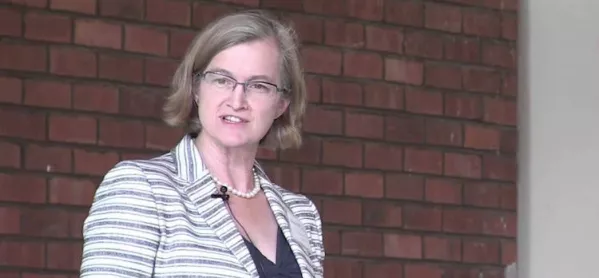Today, we’ve published our final decisions for the new education inspection framework. I’ve been incredibly heartened by the response to our consultation. Around three-quarters of parents, teachers and head teachers support what we are doing to focus on the substance of education and place less emphasis on tests and data. The new framework will go live from September, with the backing of the vast majority of educators.
The feedback I get from the teachers I meet when I visit schools and colleges or go to teacher-led conferences, and from leaders who have recently experienced the changes we’ve already made to inspections, is generally very positive. During the consultation, we have of course heard a lot from the unions and from various high-profile headteachers and former headteachers. Some have been really positive; others have been more downbeat.
What the negative voices often overlook, and what came through clearly in the individual responses, are the opportunities the new framework affords, for teachers and for leaders. Teachers tell us what a relief it is to hear that Ofsted won’t be considering internally generated progress or achievement data. Where things like this are currently being done “just for Ofsted”, they will be set free to replace the spreadsheets and trackers with activities that most help to develop curriculum and improve teaching.
Those who have taken part in any of the 200+ pilot inspections we have done have had a foretaste of life under the new framework. I am also often told that recent inspections have reflected the spirit of the new model.
Good inspection is a valuable form of CPD for leaders. All of our HMI have years of experience in school or college leadership, and they are complemented by OIs, many of whom are currently serving practitioners in strong providers. And all of them have the same simple objective: to be a force for improvement. Under the new model, inspection should feel as though it is done with leaders (and teachers) rather than being done to them.
The pre-inspection phone call will now be a constructive, professional discussion about how to construct the two days of inspection so that it leads to that invaluable CPD - which subject areas to look most closely at, which things leaders know they do well and on which they would appreciate feedback on how to improve. Inspectors will continue to observe lessons, to look at children’s work and to talk to them about what they’ve learned. But crucially these will be joined-up activities, done alongside leaders and teachers, and in the knowledge of how the curriculum in that school is constructed and sequenced. This should lead to rich discussions between inspectors and leaders about the planning and implementation of the curriculum.
I am under no illusions that inspection will ever be universally popular. I understand that it isn’t stress-free and I know (and have said on many occasions) just how much else teachers and leaders are being asked to do, with dwindling resources. However, my hope and my expectation is that this new model goes some way to changing the conversations you have in your schools and colleges about “the call”. This is about making sure that inspection in today’s environment is fair, useful and above all focused on the things that matter most to the children for whom we all work.




